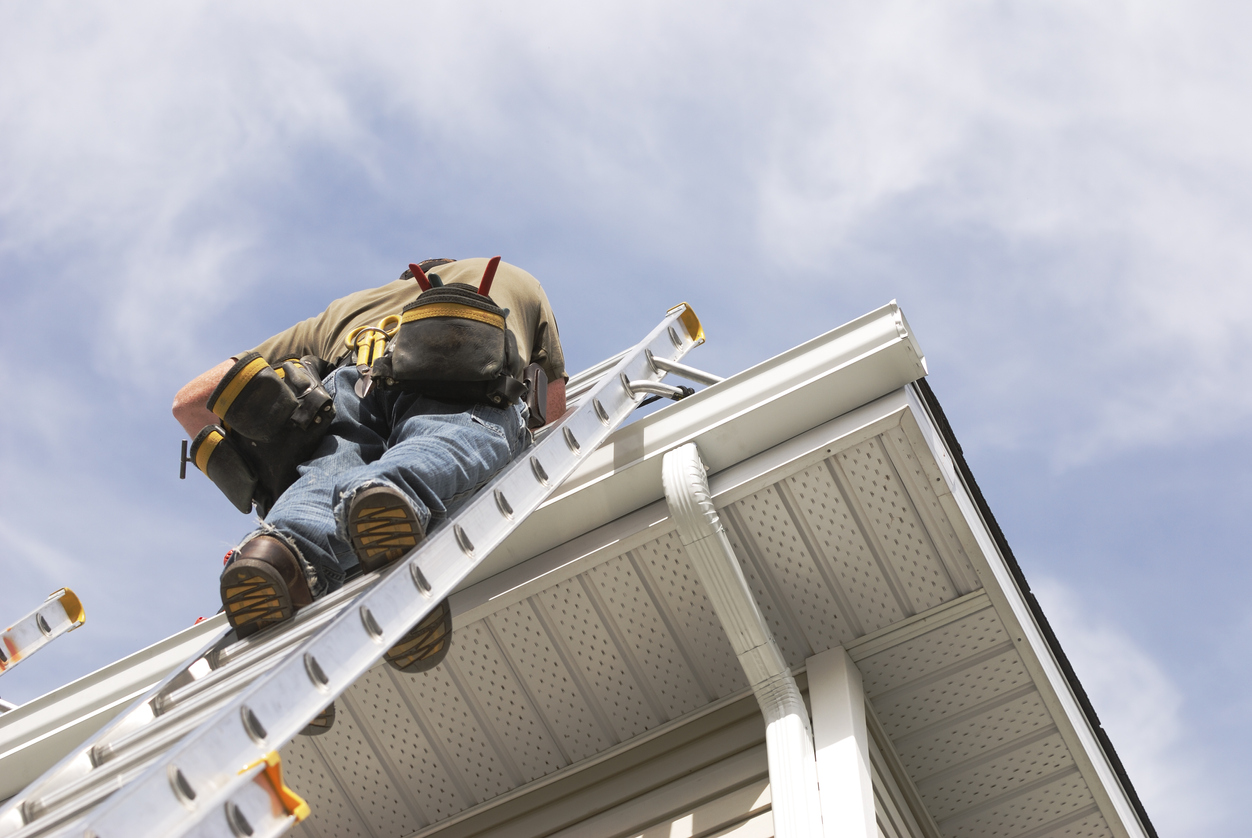When it comes to home construction, companies won’t stay in business long if their service and quality of workmanship are subpar. Developing a good relationship with customers and keeping them happy and satisfied should be a top priority for any company. When mistakes are made and there are problems with an installation, their reputation can be damaged. That’s why, when installing a rain gutter system, it’s essential to provide top-notch service and workmanship. Here we discuss five of the most common mistakes that are made when installing rain gutters, and what can be done to avoid them.
Don’t Make These Gutter Mistakes
- The wrong gutter size – The amount of rain you receive in your area is the main factor determining what size gutters you’ll need. If they are too small, they won’t be able to keep up with heavy downpours and effectively drain water away from your house. Improper sizing can also result in gutter damage and foundation problems. In addition to rainfall average, the size and pitch of your roof should also be taken into account.
- Improper gutter pitch – The pitch or angle at which the gutters are installed will determine how well rainwater and snowmelt drains off the roof and away from the house. Problems will inevitably occur if the gutters aren’t at the correct pitch. For instance, if they’re angled too sharply, water will move too quickly through them and will end up flowing over the sides. On the other hand, if they’re not angled enough, the water won’t go anywhere. Rather, it will end up sitting inside them, which can lead to gutter damage and other problems. As a general rule, a quarter-inch slope for every 10 feet of guttering will ensure proper drainage.
- Too many seams – The more seams a gutter system has, the more likely it is that leaks will occur. After all, the seams are the weakest points of a rain gutter system and where damage is most likely to occur. As such, it’s best to have the fewest seams possible. This is what makes seamless gutters such a great option.
- Too much space between hangers – When the gutter hangers, which are what attach the gutters to the house, are spaced too far apart, the gutters will begin to sag. This can lead to pooling water in these sections because the water won’t be able to drain properly. Further, the additional load and strain can eventually lead to the gutters separating from the house. For proper support, the hangers should be placed at least every three feet — or every two feet in northern climates where ice and snow can add weight.
- Bad downspout placement – Where you position the downspout is an important factor in how well the system performs. If there aren’t enough downspouts in the right locations, your gutters can experience problems that include overflowing when it rains heavily, as well as standing water. Bad downspout placement can also lead to erosion, damage to the siding, landscaping and foundation, and insect infestations in the gutters, all of which can be expensive to remedy.
What Sets Gutter Helmet® Apart?
One of the best ways to protect your gutters and ensure excellent gutter performance is to install the best gutter guard system from Gutter Helmet®. All you have to do is check out the gutter guard reviews on our website to learn what sets us apart from the crowd! If, after doing so, you’d like to schedule an installation, give Gutter Helmet a call at (800) 824-3772 or contact us online.

